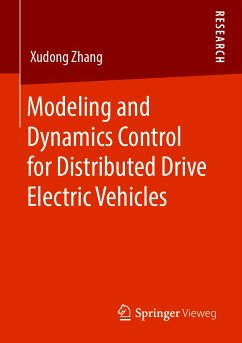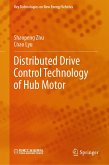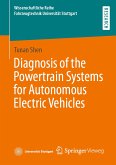Due to the improvements on electric motors and motor control technology, alternative vehicle power system layouts have been considered. One of the latest is known as distributed drive electric vehicles (DDEVs), which consist of four motors that are integrated into each drive and can be independently controllable. Such an innovative design provides packaging advantages, including short transmission chain, fast and accurate torque response, and so on. Based on these advantages and features, this book takes stability and energy-saving as cut-in points, and conducts investigations from the aspects of Vehicle State Estimation, Direct Yaw Moment Control (DYC), Control Allocation (CA). Moreover, lots of advanced algorithms, such as general regression neural network, adaptive sliding mode control-based optimization, as well as genetic algorithms, are applied for a better control performance.
About the author
Xudong Zhang received the M.S. degree in mechanical engineering from Beijing Institute of Technology, China, and the Ph.D. degree in mechanical engineering from Technical University of Berlin, Germany. Since 2017, he has joined in Beijing Institute of Technology as an Associate Research Fellow. His main research interests include vehicle dynamics control, autonomous vehicles, and power management of hybrid electric vehicles. ¿
Dieser Download kann aus rechtlichen Gründen nur mit Rechnungsadresse in A, B, BG, CY, CZ, D, DK, EW, E, FIN, F, GR, HR, H, IRL, I, LT, L, LR, M, NL, PL, P, R, S, SLO, SK ausgeliefert werden.









